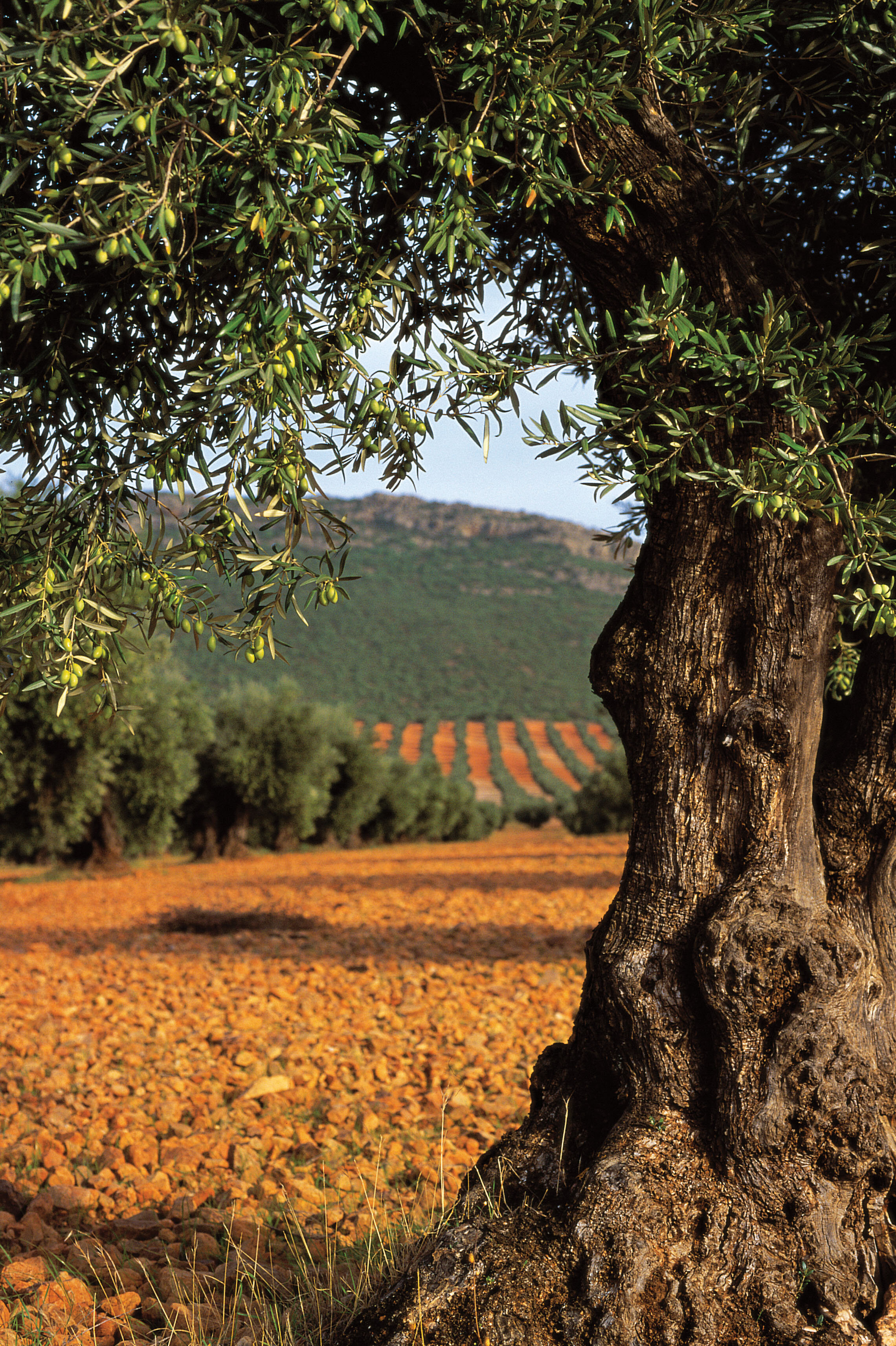The Plant-Forward Kitchen: The Mediterranean as Inspiration
Olive Oil in the Mediterranean, Plant-Forward Kitchen: The olive oil–rich, traditional Mediterranean diet has long inspired healthier food choices among Americans. Learn about the health benefits of the Mediterranean diet, as well as the role of olive orchards in sustainability.
The plant-forward diet is a good match with the traditional, Mediterranean diet as codified now in scientific literature and inspired, in part, by the cultural models of healthy eating one found in Crete, the rest of Greece, southern Italy, and many other parts of the Mediterranean in 1960.
In Crete in 1960, for example, researchers found that residents consumed, on average, as little as 35 grams (a bit over one ounce) of red meat and poultry combined per person per day. And this is at a time when these same residents of Crete witnessed more than 90% fewer incidences of heart disease compared to Americans at that time, and Greece overall had the highest adult life expectancy in the world.
Yes, there are animal foods in the traditional Mediterranean diet—in much more modest amounts than we are used to in the U.S. or Northern Europe—but our interest here is what made the plant parts of the plant-forward Mediterranean kitchen so pleasurable for those who lived in those cultures at that time, as well as now. In other words, what was it about the region’s culinary strategies and techniques in preparing fruits and vegetables, grains, pulses, and nuts that was so compelling?
One reason was perhaps best articulated by veteran Greek nutrition researcher (paraphrasing):
“It’s not that we Greeks necessarily like vegetables any more than you Americans do. The difference is in how our vegetables are prepared: with olive oil.”
— Antonia Trichopoulou, MD, PhD, president of the Hellenic Health Foundation and director of the WHO Collaborating Center of Nutrition at the University of Athens Medical School
Olive Oil and Sustainability
At a time when chefs and consumers are increasingly gravitating to the plant-forward kitchen not just because of health concerns but also because of sustainability imperatives, it is timely to understand that olive oil and the plant-forward kitchen can make important contributions on this front as well.
Abundant scientific evidence indicates that the plant-forward kitchen in general—with at least a substantial shift in cooking and dietary patterns towards plant-based foods—reduces GHG emissions from food production and mitigates climate change, cuts water usage and pressure on other natural resources, and preserves biodiversity.
The contribution of olive tree cultivation and olive oil production towards increased sustainability is also considerable. Olive orchards, especially in the Mediterranean region, are a barrier to desertification and erosion. Indeed, olive trees can grow in extreme conditions of climate and geography; 70% of the world’s olive orchards are entirely rain-fed. In a presentation by the head of the environmental R&D department of the International Olive Council (IOC), Francesco Serafini, to COP 22 (Conference of the Parties to the United Nations Framework Convention on Climate Change), the IOC noted that “olive orchards are a CO₂ sink, removing CO₂ from the atmosphere and fixing it in the soil. Olive trees are part of the solution to climate change.”
Olive Oil and Sustainability Interview Series
The UC Davis Olive Center hosted the International Olive Sustainability Conference September 5 – 7, 2024. During the conference, experts gathered to share research and projects around the topics of sustainable olive farming and olive oil production, nutrition, and issues of economic and social sustainability.
Please enjoy these interviews from the International Olive Sustainability Conference:
Abederraouf Laajimi, International Olive Council
Javier Fernandez Salvador, UC Davis Olive Center
Alexandra Kicenik Devarenne, Olive Oil Consultant
Jehangir Mehta, Chef and Sustainability Consultant
Joseph Profaci, North American Olive Oil Association
Antonia Trichopoulou, Academy of Athens
Kiki Zinoviadou, Perrotis College
Maria Raquel Lucas, University of Evora
Rosa Lamuela, University of Barcelona
Rosa Vano, Castillo De Caneno
Samantha Dorsey, McEvoy Ranch
Maria Loi, chef and TV host of The Life of Loi: Mediterranean Secrets
Ricardo Gucci, University of Pisa



